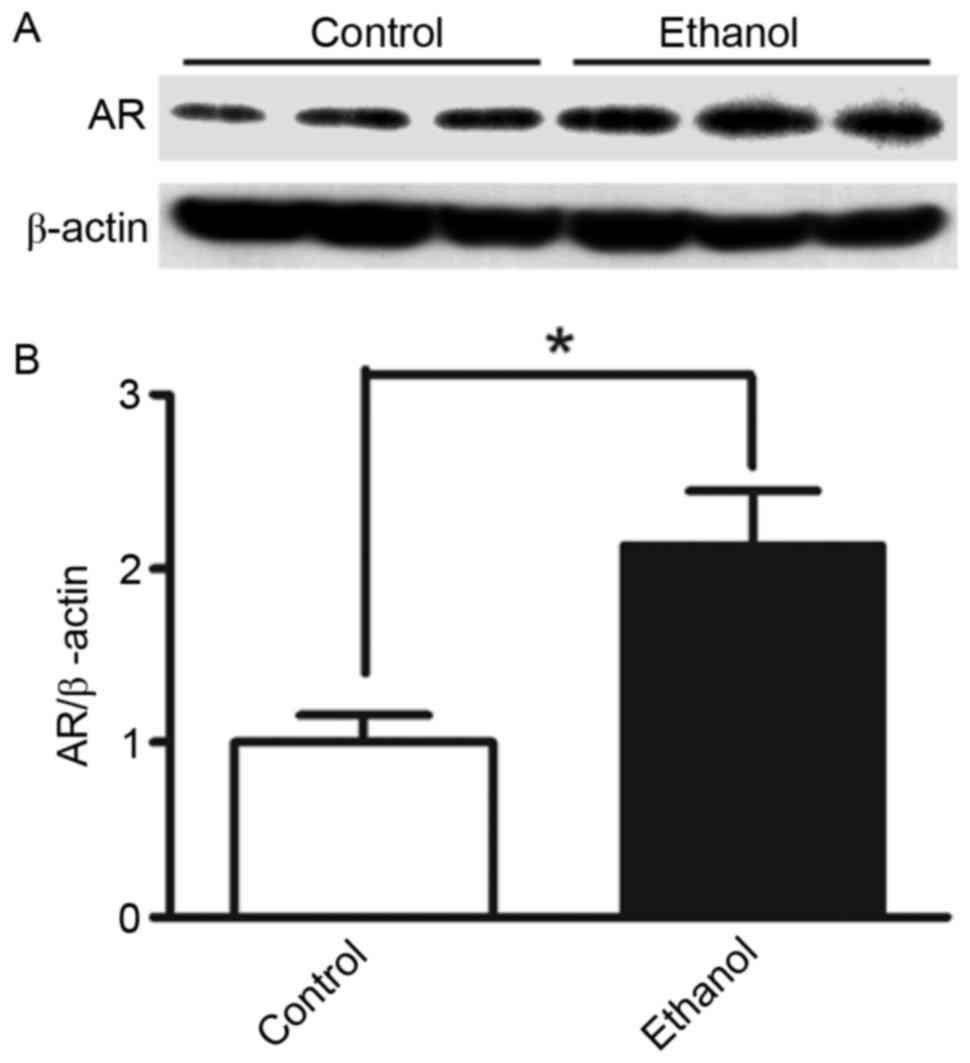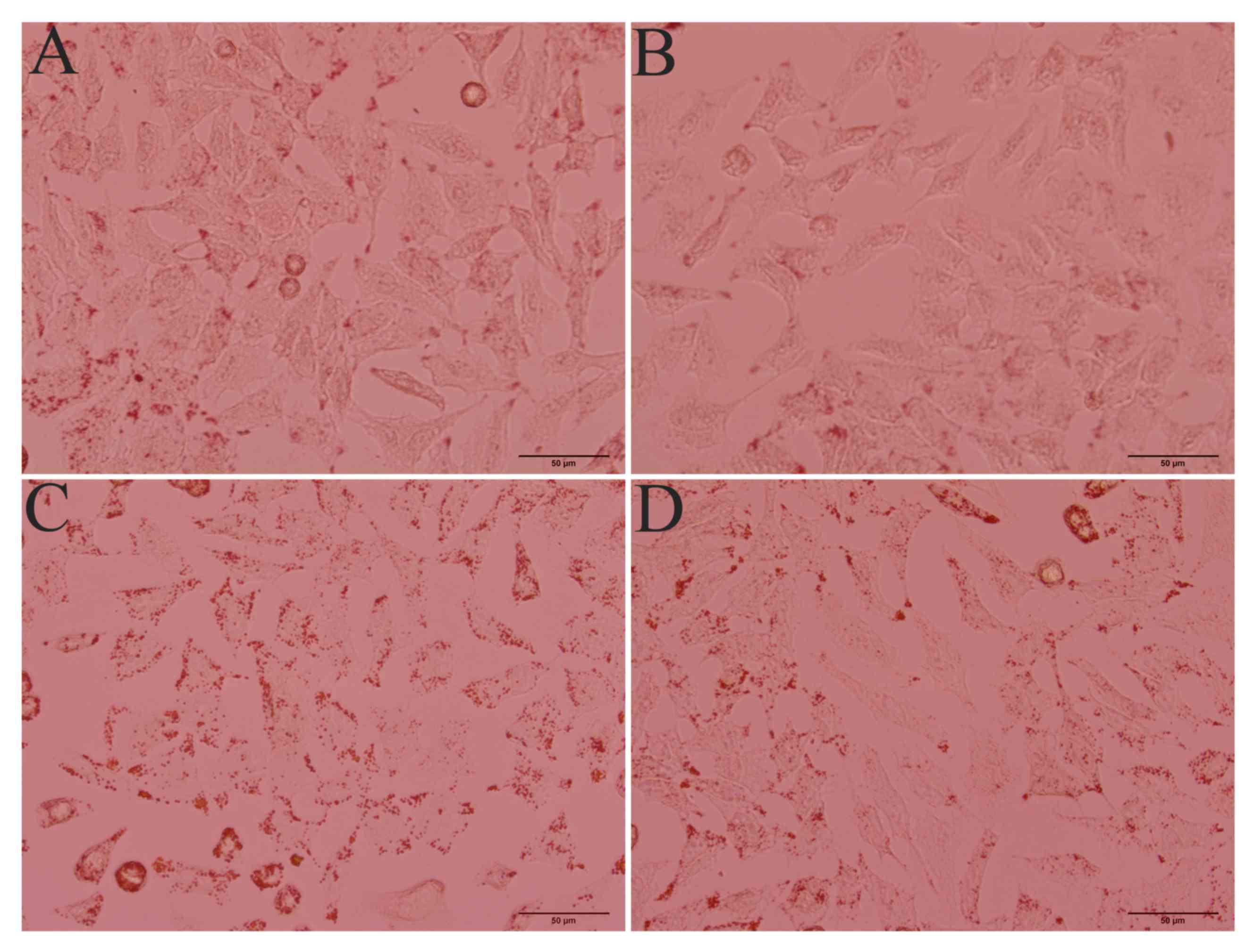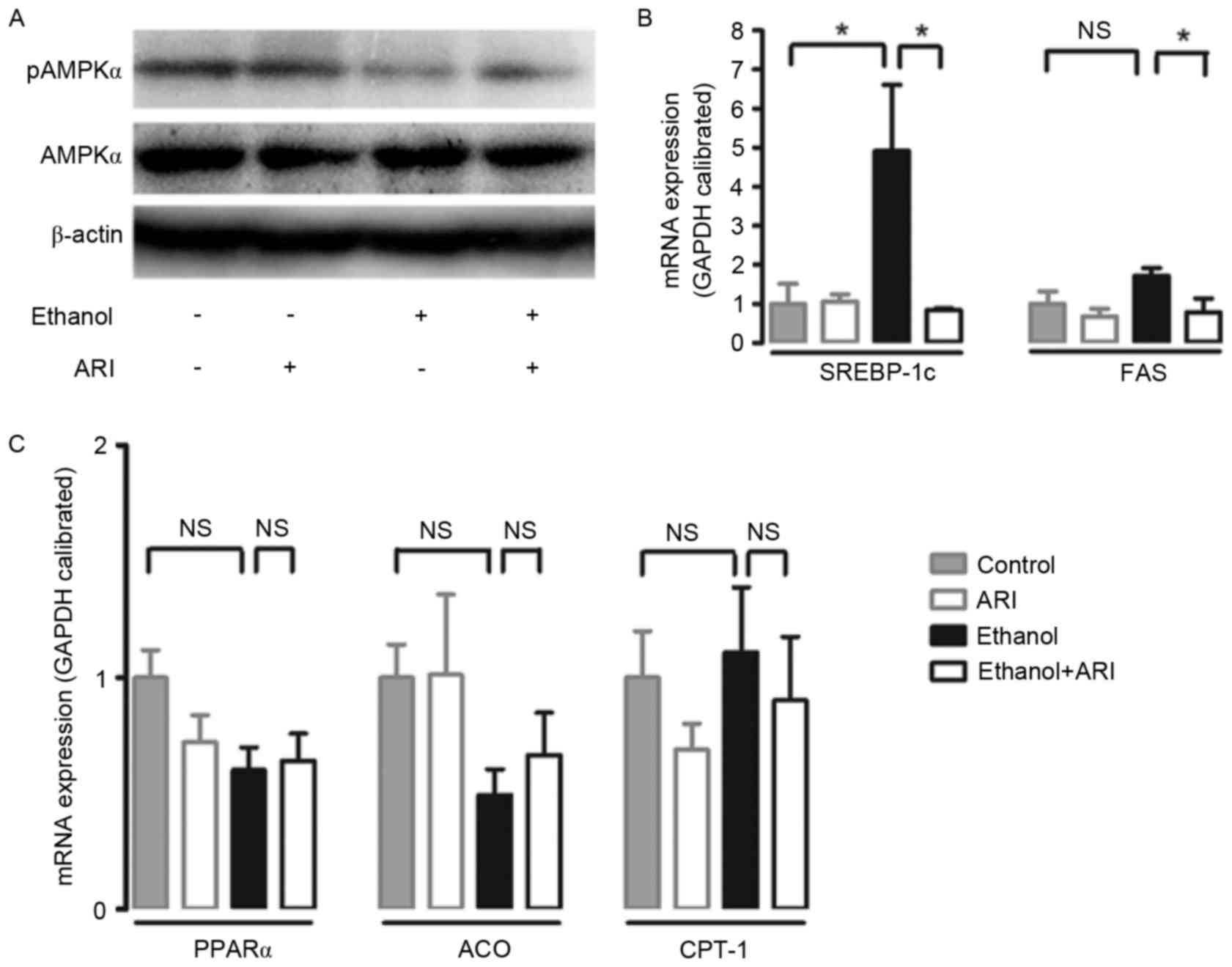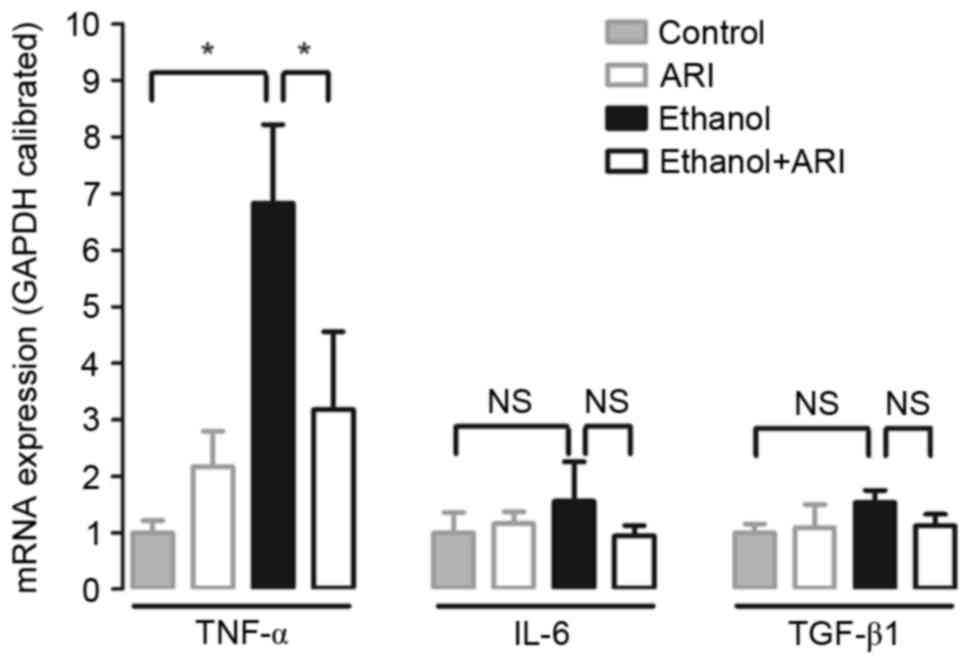|
1
|
Hers HG: Aldose reductase. Biochim Biophys
Acta. 37:120–126. 1960.(In French). View Article : Google Scholar : PubMed/NCBI
|
|
2
|
Clements RS Jr: The polyol pathway. A
historical review. Drugs. 32:(Suppl 2). S3–S5. 1986. View Article : Google Scholar
|
|
3
|
Ferraris JD, Williams CK, Jung KY, Bedford
JJ, Burg MB and García-Pérez A: ORE, a eukaryotic minimal essential
osmotic response element. The aldose reductase gene in hyperosmotic
stress. J Biol Chem. 271:18318–18321. 1996. View Article : Google Scholar : PubMed/NCBI
|
|
4
|
Yabe-Nishimura C: Aldose reductase in
glucose toxicity: A potential target for the prevention of diabetic
complications. Pharmacol Rev. 50:21–33. 1998.PubMed/NCBI
|
|
5
|
Nishimura-Yabe C: Aldose reductase in the
polyol pathway: A potential target for the therapeutic intervention
of diabetic complications. Nihon Yakurigaku Zasshi. 111:137–145.
1998.(In Japanese). View Article : Google Scholar : PubMed/NCBI
|
|
6
|
Clements RS Jr, Weaver JP and Winegrad AI:
The distribution of polyol: NADP oxidoreductase in mammalian
tissues. Biochem Biophys Res Commun. 37:347–353. 1969. View Article : Google Scholar : PubMed/NCBI
|
|
7
|
Markus HB, Raducha M and Harris H: Tissue
distribution of mammalian aldose reductase and related enzymes.
Biochem Med. 29:31–45. 1983. View Article : Google Scholar : PubMed/NCBI
|
|
8
|
Qiu L, Lin J, Xu F, Gao Y, Zhang C, Liu Y,
Luo Y and Yang JY: Inhibition of aldose reductase activates hepatic
peroxisome proliferator-activated receptor-α and ameliorates
hepatosteatosis in diabetic db/db mice. Exp Diabetes Res.
2012:7897302012. View Article : Google Scholar : PubMed/NCBI
|
|
9
|
Qiu L, Lin J, Ying M, Chen W, Yang J, Deng
T, Chen J, Shi D and Yang JY: Aldose reductase is involved in the
development of murine diet-induced nonalcoholic steatohepatitis.
PLoS One. 8:e735912013. View Article : Google Scholar : PubMed/NCBI
|
|
10
|
Chen T, Shi D, Chen J, Yang Y, Qiu M, Wang
W and Qiu L: Inhibition of aldose reductase ameliorates
diet-induced nonalcoholic steatohepatitis in mice via modulating
the phosphorylation of hepatic peroxisome proliferator-activated
receptor α. Mol Med Rep. 11:303–308. 2015.PubMed/NCBI
|
|
11
|
Brown KE, Broadhurst KA, Mathahs MM,
Kladney RD, Fimmel CJ, Srivastava SK and Brunt EM: Immunodetection
of aldose reductase in normal and diseased human liver. Histol
Histopathol. 20:429–436. 2005.PubMed/NCBI
|
|
12
|
O'Connor T, Ireland LS, Harrison DJ and
Hayes JD: Major differences exist in the function and
tissue-specific expression of human aflatoxin B1 aldehyde reductase
and the principal human aldo-keto reductase AKR1 family members.
Biochem J 343 Pt. 2:487–504. 1999. View Article : Google Scholar
|
|
13
|
Livak KJ and Schmittgen TD: Analysis of
relative gene expression data using real-time quantitative PCR and
the 2(−Delta Delta C(T)) Method. Methods. 25:402–408. 2001.
View Article : Google Scholar : PubMed/NCBI
|
|
14
|
Keegan A, Martini R and Batey R:
Ethanol-related liver injury in the rat: A model of steatosis,
inflammation and pericentral fibrosis. J Hepatol. 23:591–600. 1995.
View Article : Google Scholar : PubMed/NCBI
|
|
15
|
Altamirano J and Bataller R: Alcoholic
liver disease: Pathogenesis and new targets for therapy. Nat Rev
Gastroenterol Hepatol. 8:491–501. 2011. View Article : Google Scholar : PubMed/NCBI
|
|
16
|
Sid B, Verrax J and Calderon PB: Role of
AMPK activation in oxidative cell damage: Implications for
alcohol-induced liver disease. Biochem Pharmacol. 86:200–209. 2013.
View Article : Google Scholar : PubMed/NCBI
|
|
17
|
You M, Matsumoto M, Pacold CM, Cho WK and
Crabb DW: The role of AMP-activated protein kinase in the action of
ethanol in the liver. Gastroenterology. 127:1798–1808. 2004.
View Article : Google Scholar : PubMed/NCBI
|
|
18
|
Horton JD, Goldstein JL and Brown MS:
SREBPs: Activators of the complete program of cholesterol and fatty
acid synthesis in the liver. J Clin Invest. 109:1125–1131. 2002.
View Article : Google Scholar : PubMed/NCBI
|
|
19
|
Roder K, Zhang L and Schweizer M: SREBP-1c
mediates the retinoid-dependent increase in fatty acid synthase
promoter activity in HepG2. FEBS Lett. 581:2715–2720. 2007.
View Article : Google Scholar : PubMed/NCBI
|
|
20
|
Kong L, Ren W, Li W, Zhao S, Mi H, Wang R,
Zhang Y, Wu W, Nan Y and Yu J: Activation of peroxisome
proliferator activated receptor alpha ameliorates ethanol induced
steatohepatitis in mice. Lipids Health Dis. 10:2462011. View Article : Google Scholar : PubMed/NCBI
|
|
21
|
Kota BP, Huang TH and Roufogalis BD: An
overview on biological mechanisms of PPARs. Pharmacol Res.
51:85–94. 2005. View Article : Google Scholar : PubMed/NCBI
|
|
22
|
Thiele DL: Tumor necrosis factor, the
acute phase response and the pathogenesis of alcoholic liver
disease. Hepatology. 9:497–499. 1989. View Article : Google Scholar : PubMed/NCBI
|
|
23
|
Kawaratani H, Tsujimoto T, Douhara A,
Takaya H, Moriya K, Namisaki T, Noguchi R, Yoshiji H, Fujimoto M
and Fukui H: The effect of inflammatory cytokines in alcoholic
liver disease. Mediators Inflamm. 2013:4951562013. View Article : Google Scholar : PubMed/NCBI
|
|
24
|
Viollet B, Guigas B, Leclerc J, Hébrard S,
Lantier L, Mounier R, Andreelli F and Foretz M: AMP-activated
protein kinase in the regulation of hepatic energy metabolism: From
physiology to therapeutic perspectives. Acta Physiol (Oxf).
196:81–98. 2009. View Article : Google Scholar : PubMed/NCBI
|
|
25
|
Tomita K, Tamiya G, Ando S, Kitamura N,
Koizumi H, Kato S, Horie Y, Kaneko T, Azuma T, Nagata H, et al:
AICAR, an AMPK activator, has protective effects on alcohol-induced
fatty liver in rats. Alcohol Clin Exp Res. 29:(12 Suppl).
S240–S245. 2005. View Article : Google Scholar
|
|
26
|
Shimano H, Horton JD, Shimomura I, Hammer
RE, Brown MS and Goldstein JL: Isoform 1c of sterol regulatory
element binding protein is less active than isoform 1a in livers of
transgenic mice and in cultured cells. J Clin Invest. 99:846–854.
1997. View Article : Google Scholar : PubMed/NCBI
|
|
27
|
Lluis JM, Colell A, García-Ruiz C,
Kaplowitz N and Fernández-Checa JC: Acetaldehyde impairs
mitochondrial glutathione transport in HepG2 cells through
endoplasmic reticulum stress. Gastroenterology. 124:708–724. 2003.
View Article : Google Scholar : PubMed/NCBI
|
|
28
|
You M, Fischer M, Deeg MA and Crabb DW:
Ethanol induces fatty acid synthesis pathways by activation of
sterol regulatory element-binding protein (SREBP). J Biol Chem.
277:29342–29347. 2002. View Article : Google Scholar : PubMed/NCBI
|
|
29
|
You M and Crabb DW: Recent advances in
alcoholic liver disease II. Minireview: Molecular mechanisms of
alcoholic fatty liver. Am J Physiol Gastrointest Liver Physiol.
287:G1–G6. 2004. View Article : Google Scholar : PubMed/NCBI
|
|
30
|
McClain CJ and Cohen DA: Increased tumor
necrosis factor production by monocytes in alcoholic hepatitis.
Hepatology. 9:349–351. 1989. View Article : Google Scholar : PubMed/NCBI
|
|
31
|
Endo M, Masaki T, Seike M and Yoshimatsu
H: TNF-alpha induces hepatic steatosis in mice by enhancing gene
expression of sterol regulatory element binding protein-1c
(SREBP-1c). Exp Biol Med (Maywood). 232:614–621. 2007.PubMed/NCBI
|


















